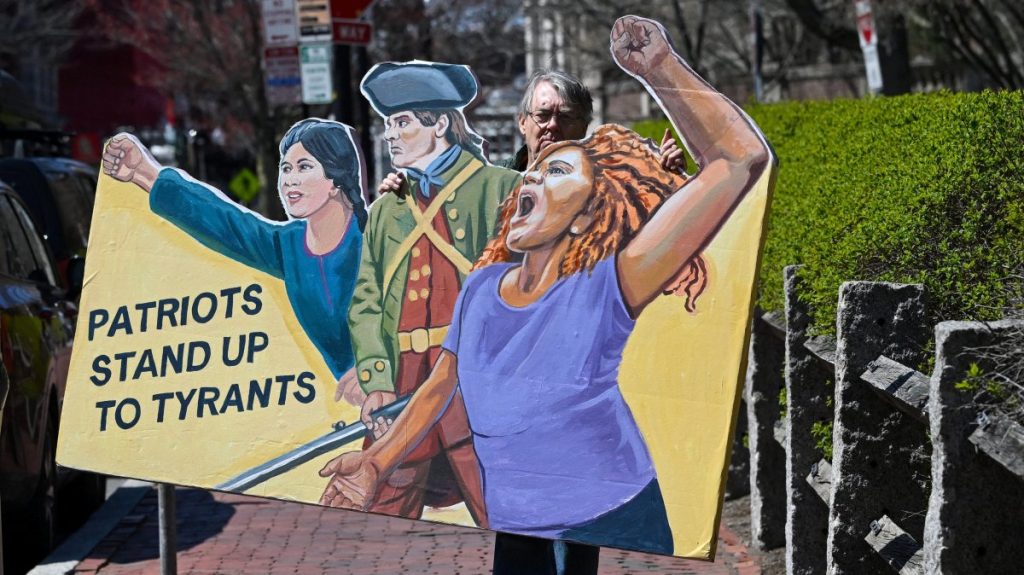In the midst of the ongoing disruptions, if not chaos, that have ensued following the high number of executive orders signed by U.S. President Donald Trump, very often, we can’t see the forest for the trees. If there is a method in the madness, for those of us on the outside, it is so very hard to discern it.
Without aspiring to account for and make sense of all the executive orders of the Trump administration and the pushback it receives, let me see if I might be able to throw some light – from a philosophical perspective – on the political conflict, or at least opposing political visions, of this moment as relates to the executive orders curtailing equity programs in the U.S.’s universities, colleges and K-12 schools. What seems to be at stake in the United States is two values, albeit cognates of one another, that have implicitly and explicitly been appealed to by opposing camps of this debate.
In rolling back Diversity, Equity and Inclusion (DEI) programs across the federal government, including the military, the federal civil service and various federal grants and subsidies for primary, secondary and tertiary education across the nation, it is obvious that the White House is taking an anti-equity stance. Yet, sweeping away equity is not enough. What the White House has to do is (whether surreptitiously or otherwise) put in place and defend the tried-and-true value of equality – and it is equality of opportunity, not equality of outcome.
What is going on here is fairly straightforward: intuitively, most of us who have come of age before notions of “reverse discrimination” and “positive discrimination” were prevalent had fundamentally accepted the ideal of equality as a value that provides equal opportunities to all regardless of one’s age, class, creed, ethnicity, geographical or national origins, religion or sex. Call this ideal “equality for all.”
This centuries-old value is typically cashed out by the concept of unitary citizenship where each citizen has the same package of rights, protections, immunities and opportunities as any other. No one gets more on account of membership in an estate, e.g., the aristocracy, and certainly no one gets less due to putative characteristics such as sex, race and ethnicity that are arbitrary from the moral point of view. Everyone is entitled to the same treatment, the same consideration and the same respect. Basically, when it comes to service, protection and opportunity, we citizens are all the same: equality under law.
Closely related to equality is equity, a value to which some on the Left (center-left and hard-left) have appealed in order to answer the aspirations of those who feel oppressed and excluded by equal laws. Under equal laws that substantiate the ideal of equality, supposedly, everyone experiences the same impact as intended.
Not so fast, say the proponents of equity, who point out the disparate impacts of equal laws, especially on individuals who have been racialized, minoritized and ethnicized and traditionally characterized as exotic or inferior. Owing to the legacy of slavery, sexism and laws that had excluded ethnic, religious, sexual minority groups and aboriginal groups, the putatively equal laws have in reality been all a lie, a pretense, a cover for racist, sexist, majority-biased and heteronormative laws. As a corrective, and perhaps a superior value, to equality, the value of equity turns on the theory of disparate impacts of the law, such that, for example, employment and education policies and practices that disproportionately impact minorities and other protected groups could be challenged regardless of their intent.
What is particularly striking, and perhaps counterintuitive, in the current political debate is that equality as a value is now perceived by the DEI camp as the villain and equity the protagonist. This can be unsettling and awfully distressing for those who had long held equality near and dear. Indeed, for the old-fashioned lefties, their sense of betrayal by those who self-identify as the New Left, e.g., the progressives and the hard-left, could not be more painful – and poignant.
By rooting out equity programs in the nation’s universities, colleges and K-12 schools, the White House’s executive orders, which are not legislation passed by the Congress and signed into law by the president, should offer a quantum of solace for those, who see themselves as traditional defenders of the value of equality. Whether these conservatives can reconcile themselves with the current crop of social justice warriors who appear to be hell-bent on institutionalizing equity programs at the expense of equality must await another occasion. For now, at least, the pendulum has swung back to the equality camp.


